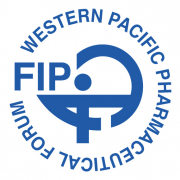Audit confirms award compliance progress
Dec 16, 2013
The Fair Work Ombudsman’s national pharmacy audit report shows significant progress in award compliance across the industry.
The Ombudsman’s office (FWO) gives strong recognition to the role the Pharmacy Guild in educating members to comply with the Pharmacy Industry Award 2010. Guild members achieved higher levels of compliance (79%) than the broader industry (75%). The Ombudsman’s report concluded: “The impact of the Guild’s involvement with their members in promoting compliance and particularly their pre-audit was evident throughout this campaign.”
Pharmacy businesses were found to be more likely to be compliant if they were Guild members and actively sought the advice of the Guild IR Managers.
The Executive Director of the Guild, David Quilty, said: “The Guild is confident – and the national audit confirms – that the overwhelming majority of community pharmacies act in good faith to comply fully with the complex requirements of the Pharmacy Industry Award.
“The progress shown in the national audit reflects the Guild’s work, co-operatively with the FWO, to remind pharmacy owners of the need to be diligent in understanding and meeting their obligations under the award,” he said.
“The Guild appreciates the constructive approach by the FWO, and will ensure its findings inform our ongoing work assisting our members to comply with their workplace obligations,” Mr Quilty said.
While we will continue to strive for zero non-compliance, a sector wide 25% non-compliance rate is within FWO tolerances and certainly a significant improvement on the 44% non-compliance rate found in the 2010 Queensland audit which triggered the national audit. The non-compliance in Queensland in the national audit was a creditable 12%. The FWO noted: “In light of the 2010 audit program in Queensland, it was pleasing to find that the majority of businesses in Queensland were compliant.
The highest compliance rate was found in South Australia (93%), with the FWO describing it as an “outstanding result.” This must be attributed in part to the Guild’s state based payroll service in that State.
The lowest compliance rate was at 33% in Western Australia, but the FWO noted that the sample in Western Australia was only six pharmacies, meaning four were non-compliant.
The FWO reported very high immediate rectification of any under payments. “It was pleasing to see employers wanting to work with us and quickly rectifying issues that were identified,” the report said.
Of the 71 Guild members found to be in contravention, 29% had rectified their contraventions before the audit, and 60% rectified their contraventions immediately after the audit.
No interns were found to be underpaid in any of the businesses audited.
The FWO noted that some contraventions related to uniform allowance non-compliance. This is not surprising as the uniform allowance clause was found to be ambiguous during the recent two year review and was changed with effect from 1 October 2013 to provide better clarity in how it is to be paid and applied in the workplace.
Media inquiries: Greg Turnbull 0412 910261
The Ombudsman’s office (FWO) gives strong recognition to the role the Pharmacy Guild in educating members to comply with the Pharmacy Industry Award 2010. Guild members achieved higher levels of compliance (79%) than the broader industry (75%). The Ombudsman’s report concluded: “The impact of the Guild’s involvement with their members in promoting compliance and particularly their pre-audit was evident throughout this campaign.”
Pharmacy businesses were found to be more likely to be compliant if they were Guild members and actively sought the advice of the Guild IR Managers.
The Executive Director of the Guild, David Quilty, said: “The Guild is confident – and the national audit confirms – that the overwhelming majority of community pharmacies act in good faith to comply fully with the complex requirements of the Pharmacy Industry Award.
“The progress shown in the national audit reflects the Guild’s work, co-operatively with the FWO, to remind pharmacy owners of the need to be diligent in understanding and meeting their obligations under the award,” he said.
“The Guild appreciates the constructive approach by the FWO, and will ensure its findings inform our ongoing work assisting our members to comply with their workplace obligations,” Mr Quilty said.
While we will continue to strive for zero non-compliance, a sector wide 25% non-compliance rate is within FWO tolerances and certainly a significant improvement on the 44% non-compliance rate found in the 2010 Queensland audit which triggered the national audit. The non-compliance in Queensland in the national audit was a creditable 12%. The FWO noted: “In light of the 2010 audit program in Queensland, it was pleasing to find that the majority of businesses in Queensland were compliant.
The highest compliance rate was found in South Australia (93%), with the FWO describing it as an “outstanding result.” This must be attributed in part to the Guild’s state based payroll service in that State.
The lowest compliance rate was at 33% in Western Australia, but the FWO noted that the sample in Western Australia was only six pharmacies, meaning four were non-compliant.
The FWO reported very high immediate rectification of any under payments. “It was pleasing to see employers wanting to work with us and quickly rectifying issues that were identified,” the report said.
Of the 71 Guild members found to be in contravention, 29% had rectified their contraventions before the audit, and 60% rectified their contraventions immediately after the audit.
No interns were found to be underpaid in any of the businesses audited.
The FWO noted that some contraventions related to uniform allowance non-compliance. This is not surprising as the uniform allowance clause was found to be ambiguous during the recent two year review and was changed with effect from 1 October 2013 to provide better clarity in how it is to be paid and applied in the workplace.
Media inquiries: Greg Turnbull 0412 910261
